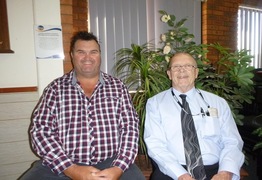Australian adoption numbers fall to record low
Laura Williams
11 December 2021, 7:22 AM
 Children are in need of permanency, but the barriers to adoption are rigorous.
Children are in need of permanency, but the barriers to adoption are rigorous.The state Government has renewed calls for people to consider becoming adoptive parents, however foster parents in the process of adoption say that it’s not so simple.
In Western NSW, the number of carers available falls short of the amount of children in foster care who require a sense of permanency and care.
Regional manager for Anglicare NSW West Katie Houghton said that finding foster carers has always been difficult, with Covid-19 adding more layers of complexities.
“The Western region currently have 60+ children that need their forever homes. Some of these children are in motel rooms. There are also a lot of large sibling groups that we often find carers are unable to accommodate,” Ms Houghton said.
While ideas of cutting red tape have been mentioned, Ms Houghton said that the process to become an adoptive parent is a lengthy process with extensive assessments.
Various foster parents commented that any simpler process would be ambitious to achieve.
“I think the call by the government to become adoptive parents is a novel cause to be promoting but the theory of it is simpler than the reality. It is a very long and drawn-out process,” one foster parent said.
The length of the process, according to Ms Houghton, is one of the biggest deterrents to potential adoptive parents.
“It can feel a little bit like being stuck in limbo and can be made hard when the child is asking where things are at and why things haven’t changed. Children’s behaviour has been known to escalate during this time due to the uncertainty that they feel and their need for having permanency in their lives,” Ms Houghton said.
One foster parent, who is currently in the process of adoption, said that had they not been so invested in their foster children, they would’ve given up a long time ago.
“Everyone we deal with seems to be waiting on someone else up the chain. I know it has been significantly impacted with Covid-19 and no one being able to travel, but the process itself can seem unclear,” they said.
Ms Houghton said that despite the complexity of the process, it is almost always necessary to maintain the extent of the protections for the sake and safety of the children.
“We want to make sure that the child will be in a stable environment where they can thrive, and feel a sense of stability, permanence and belonging without the trauma of being moved from family to family,” Ms Houghton said.
In a 2017 research paper from Adopt Change, potential adoptive parents said they faced prejudiced assessments of adoptive suitability, from marital status, sexual preference, and for some, a focus on their weight.
For 40 per cent of the respondents, the adoption process took over 5 years.
“I think the push for foster carers to adopt could be better supported by government agencies, particularly with funding and personnel…The assessor for our application has had to be brought in from Sydney which is over five hours away, adding time to our application and processing times,” another foster parent said.
The Australian Institute of Health and Welfare reported that adoption ins Australia this year have decreased to 264, the lowest number on record.



